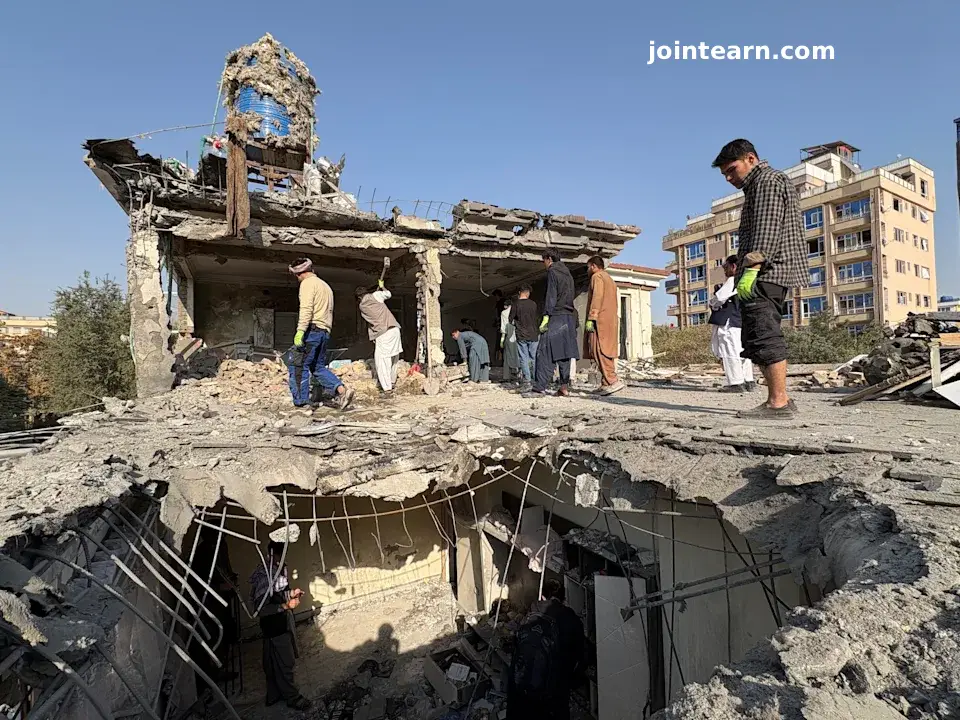
ISLAMABAD — Afghanistan and Pakistan have headed to Turkey for a second round of crisis talks aimed at defusing rising border tensions after recent clashes left dozens dead and hundreds wounded, officials confirmed on Friday.
The high-level discussions in Istanbul, facilitated by Qatar and Turkey, mark a critical diplomatic push to restore peace between the two South Asian neighbors, whose relations have deteriorated sharply amid escalating cross-border violence.
Background: Weeks of Deadly Border Fighting
The tensions follow weeks of intense fighting along the Afghanistan-Pakistan frontier, particularly in southern Kandahar Province near Spin Boldak, a key trade and transit point. Pakistani airstrikes in the area reportedly destroyed homes and killed civilians, further inflaming the crisis.
Each side blames the other for provoking the conflict.
- Islamabad accuses Kabul’s Taliban-led government of harboring armed groups that launch cross-border attacks on Pakistani security forces.
- Afghanistan, in turn, accuses Pakistan of violating its sovereignty through drone and air assaults targeting militant positions inside Afghan territory.
The recent violence has closed major border crossings, crippling trade and leaving thousands of trucks stranded. According to Afghanistan’s Chamber of Commerce and Industry, the closure has caused millions of dollars in daily trade losses, worsening economic hardship on both sides.
Doha Ceasefire Paves Way for Istanbul Talks
Last weekend, Qatar and Turkey mediated a temporary ceasefire between the two countries, successfully halting hostilities for the first time since the fighting began earlier this month.
While the truce has largely held, border crossings remain closed, except for Afghan refugees departing Pakistan under repatriation programs.
The Istanbul summit now aims to build on the Doha outcome by addressing remaining security and political issues through structured dialogue.
“The remaining issues will be discussed at this meeting,” said Zabihullah Mujahid, chief spokesman for the Taliban government.
He confirmed that Deputy Interior Minister Haji Najib is leading Afghanistan’s delegation to Istanbul.
Pakistan’s Stance: ‘We Are Not Asking for the Moon’
In Islamabad, Foreign Ministry spokesman Tahir Hussain Andrabi expressed cautious optimism about the Istanbul talks, crediting the earlier mediation efforts for reducing tensions.
“There has been no major full-scale terrorist attack emanating from Afghan soil in the last two to three days,” Andrabi told journalists.
“So, the Doha talks were fruitful. We would like the trend to continue in Istanbul and post-Istanbul.”
He emphasized that Pakistan’s core demand is for Kabul to “control and apprehend armed groups” operating from Afghan soil, particularly militants linked to the Tehrik-i-Taliban Pakistan (TTP).
“We are not asking for the moon,” Andrabi said. “If Kabul takes action against these groups, our relations could be back on track.”
Trade and Security on the Agenda
The talks are expected to focus on:
- Reopening the Spin Boldak-Chaman crossing, a vital commercial gateway.
- Establishing joint mechanisms for intelligence-sharing and border monitoring.
- Preventing the resurgence of militant attacks on both sides.
- Addressing the humanitarian fallout from recent violence, including displaced families and damaged infrastructure.
Experts say the negotiations could serve as a litmus test for regional diplomacy, as both nations balance domestic political pressures and security concerns.
“If the Istanbul talks succeed, they could mark a turning point in Afghanistan-Pakistan relations,” said a South Asian security analyst. “But mutual distrust runs deep, and it will take more than one meeting to rebuild confidence.”
Turkey and Qatar’s Expanding Mediation Role
Both Turkey and Qatar have emerged as key diplomatic intermediaries in South Asian conflicts, leveraging their influence to broker ceasefires and facilitate dialogue.
Ankara, which maintains long-standing relations with both Kabul and Islamabad, hailed the upcoming meeting as an “important step toward restoring peace and stability” in the region. Turkish officials said they would continue to “support confidence-building measures” and ensure both parties adhere to the ceasefire.
The Road Ahead
Despite the hopeful tone, analysts caution that without concrete progress in Istanbul, the risk of renewed border clashes remains high. Pakistan continues to face a surge in militancy in its northwest regions, while Afghanistan grapples with international isolation and a fragile economy.
Still, both sides appear motivated to avoid further bloodshed, with trade losses mounting and public frustration growing.
“The priority now is to turn the truce into a sustainable peace framework,” said Andrabi. “That will be our message in Istanbul.”


Leave a Reply